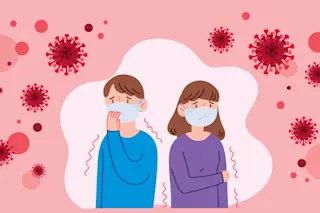As cases of COVID-19 proliferate, there’s a pandemic of fear unfolding alongside the pandemic of the coronavirus.
Media announce mass cancellations of public events “over coronavirus fears.” TV stations show images of “coronavirus panic shopping.” Magazines discuss attacks against Asians sparked by “racist coronavirus fears.”
Due to the global reach and instantaneous nature of modern media, fear contagion spreads faster than the dangerous yet invisible virus. Watching or hearing someone else who’s scared causes you to be frightened, too, without necessarily even knowing what caused the other person’s fear.
As a psychiatrist and researcher studying the brain mechanisms of social regulation of emotions, I frequently see in clinical and experimental settings how powerful fear contagion can be.
Fear contagion is an evolutionarily old phenomenon that researchers observe in many animal species. It can serve a valuable survival function.
Imagine a herd of antelopes pasturing in the sunny African savanna. Suddenly, ...














